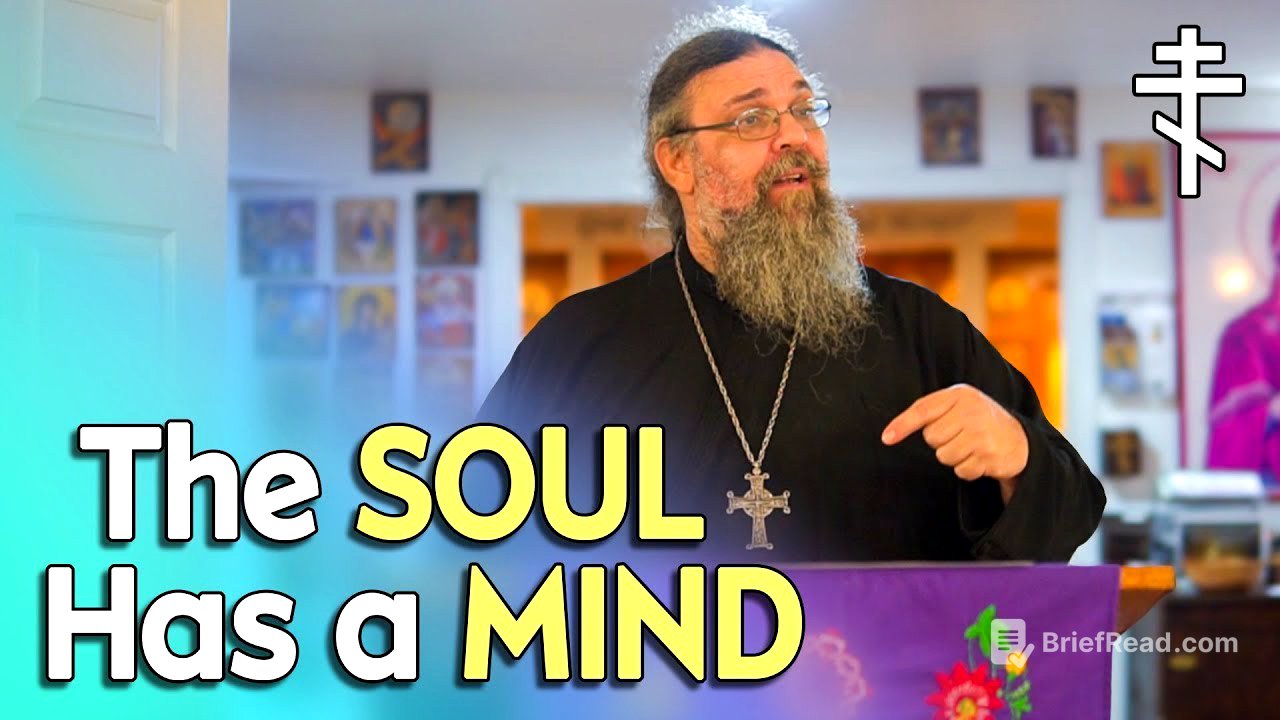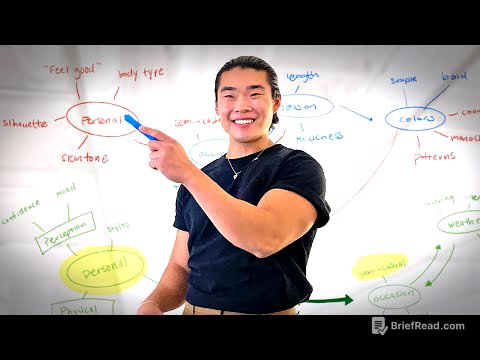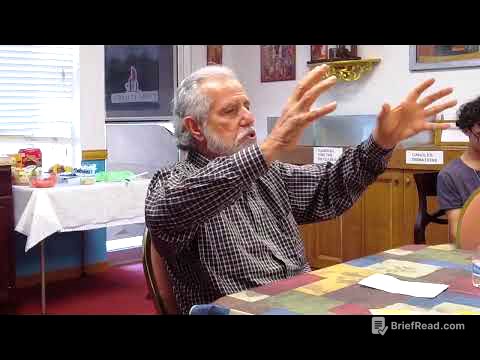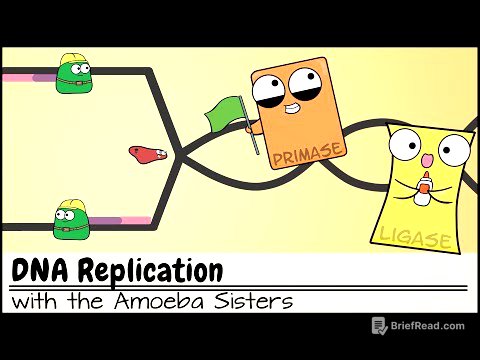TLDR;
This sermon explores the concept of spiritual reorientation during Lent, using the analogy of a car's manifold and its bolts to illustrate the importance of the "nous," or spiritual mind. It emphasizes presenting oneself as a living sacrifice, resisting worldly conformity, and renewing the mind through faith and the Holy Spirit. The ultimate goal is to align with God's will, heal the soul, and achieve a deeply personal relationship with Christ.
- Reorienting towards God during Lent.
- The "nous" as a spiritual manifold.
- Presenting oneself as a living sacrifice.
- Resisting worldly conformity and renewing the mind.
- Healing the soul and aligning with God's will.
Introduction: Reorienting Towards God [0:01]
The sermon begins by highlighting the Lenten practice of reorienting oneself towards God. To illustrate this concept, the speaker uses an analogy of a car's manifold, a crucial engine component that ensures the smooth flow of gases. Just as a damaged manifold affects engine performance, spiritual well-being is affected by the state of our inner selves.
The Manifold and the Bolts: An Analogy for Spiritual Health [0:36]
The speaker draws a parallel between the bolts that hold a car's manifold together and the "nous," a term he uses to describe the spiritual manifold. He explains that overtightened or broken bolts in an engine require specialized tools and techniques to extract, similar to how deeply ingrained sins and passions require diligent effort and divine assistance to overcome. Snapped bolt is like broken part of us and if we want to keep our vehicle (ourselves) we need to fix it.
Presenting Yourself as a Living Sacrifice [5:25]
Referencing Romans 12:1-2, the sermon emphasizes the importance of presenting our bodies as a living sacrifice, holy and acceptable to God. This involves being full of vigor, fresh, strong, and active in our faith. It calls to mind the Priestly service, where our bodies are brought to God's altar as a well-pleasing offering. This sacrifice should be unblemished, without defect, and offered with a sweet aroma to the Lord, symbolizing true worship through the Liturgy.
Resisting Conformity and Transforming the Mind [14:03]
The speaker urges listeners not to conform to the world but to be transformed by the renewing of their minds. This transformation involves resisting the World Systems and popular culture that rebel against God. Instead, believers should transfigure themselves through a complete change for the better, guided by the "nous," or spiritual mind. This process leads to producing good fruits, demonstrating the perfect will of God in our lives.
The Noose: The Eye of the Soul [19:15]
The "noose" is described as the spiritual manifold, a faithful relationship with God that changes our relationship with the world. It is more than intellect; it is the highest faculty of human nature, encompassing the mind and heart, enabling us to comprehend God. The "noose" involves perceiving, understanding, feeling, judging, and discerning spiritual truth, recognizing goodness, and abhorring evil.
Healing the Noose and Achieving Theosis [28:11]
The sermon emphasizes that the chief concern of the Orthodox Church is healing the human soul, particularly the "noose." This healing involves transforming our thinking and drawing closer to God, allowing Him to work within us. The goal is to achieve theosis, becoming more like God, by extracting broken bolts (sins) and replacing them with virtues through the Holy Spirit.
Practical Steps for Spiritual Growth [31:15]
Practical steps for spiritual growth include diligent prayer, fasting, reading scriptures, studying the Church Fathers and lives of the saints, and attending church services. For deeper issues, seeking guidance from a spiritual father is recommended. Confession and repentance are essential for transfiguring the brokenness of our "noose" into an acceptable sacrifice to God.
Personal Relationship with Christ and Final Thoughts [34:38]
The sermon concludes by emphasizing the deeply personal nature of each individual's relationship with Christ. Intellectual reasoning alone cannot lead to the kingdom of heaven; humility and recognition of our brokenness are essential. By allowing God to work in our darkened souls through holy illumination, we can conform to the mold of Christ and become the people we are called to be.









